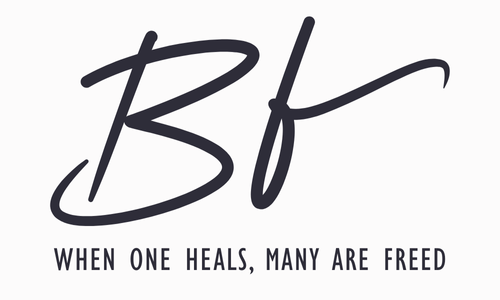The Inner Voice of “Not Enough”: How Shame Shapes Self-Worth
Image Credit: Nick Fancher
It often starts small and works its way to the front of your head, letting you know of its permanence.
As you scroll through social media: “You’ll never measure up.”
Self taunting after a meeting: “They must have noticed you weren’t good enough.”
An unease in a relationship: “If they really knew you, they’d leave.”
This is more often than not the inner voice of shame. It is the running commentary that tells us we are somehow falling short. For many people, it’s not just an occasional thought. It’s the ambient soundtrack, shaping self-worth in ways that can leave us exhausted, anxious, and disconnected.
The Origins of the “Not Enough” Voice
In Daring Greatly, researcher Brené Brown writes:
“We live in a culture of never enough: never good enough, never thin enough, never successful enough, never smart enough. The opposite of scarcity is not abundance; it’s enough.”
Shame thrives in this scarcity culture.
It turns external pressures into internal narratives. The parent who only praised achievement, the partner who withdrew affection during conflict, the endless comparisons at school or work — all of these can plant the seeds of “not enough.” Over time, these messages become so familiar that they feel like our voice, when really they are echoes of old experiences.
How Shame Distorts the Self
Psychologically, shame differs from guilt in one crucial way.
Guilt: “I did something wrong.”
Shame: “I am wrong.”
Where guilt points to behaviour that can be repaired, shame attacks identity. It convinces us that the flaw is not in what we did, but in who we are.
The existential philosopher Søren Kierkegaard explained that despair happens when we’re not living in alignment with our true self, or when we base our worth on external conditions rather than our essential self before God.
Shame thrives in that misalignment, insisting that we’ll never be enough to bridge that gap.
Another philosopher, Jean-Paul Sartre, wrote that we become acutely self-aware once we realise we were being watched. His famous example was someone caught peering through a keyhole and the sudden awareness of being seen brings a rush of shame. In everyday life, this shows up when shame convinces us others can see only our flaws, the parts we most want to hide. Even if no one is judging, we imagine their gaze as exposing and condemning.
Through this lens, the “not enough” voice isn’t just a passing thought. It becomes a distorted identity, one that dictates how we interact with the world.
Image Credit: Cedric Letsch
The Cost of Carrying “Not Enough”
Shame doesn’t stay hidden inside. It leaks into daily life, shaping both our inner world and our relationships.
Personally:
You might push yourself to perfection, never allowing rest.
Achievements feel fleeting because the voice dismisses them instantly.
Self-care feels undeserved, as though you haven’t “earned” kindness.
Relationally:
You may find yourself people-pleasing, afraid of rejection if you say no.
Intimacy may feel unsafe, because letting someone close risks them seeing your “flaws.”
At times, you might withdraw entirely, hiding from the very connection you long for.
What starts seemingly small can dictate the entire rhythm of your life.
Why Logic Doesn’t Silence the Voice
If shame were only a thought, you could talk yourself out of it with logic. But shame is ingrained in the body, not just the mind, as I mentioned in last week’s blog.
Neuroscience research shows that shame activates regions of the brain tied to social pain, bodily awareness, and inhibition. People often describe feeling hot in the face, heavy in the chest, or the urge to shrink into themselves. Before you reason with shame, your body has already felt and assimilated it.
This is why the “not enough” voice feels so convincing. It doesn’t arrive as an abstract opinion; it arrives with the weight of lived sensation. It feels true, even when it isn’t.
Image Credit: Ryan Byrne
A Different Way Forward
The inner critic might sound permanent, but it is not the truth of who you are. It is a learned voice that grew out of old experiences and cultural pressures, but that can be questioned and softened.
Therapy offers a space to notice this voice with compassion rather than judgement.
By slowing down and exploring its roots, you begin to see that you are not the voice.
You are the person who hears it and you can learn to respond differently.
If the inner voice of “not enough” has been running your life in your work, your relationships, and the way you see yourself:
I can help you untangle its grip and rediscover your worth.
I offer both online therapy across the UK and in-person sessions in Dorset.
You may also like:
Research
Brown, B. (2015). Daring Greatly: How the Courage to Be Vulnerable Transforms the Way We Live, Love, Parent, and Lead. Penguin Life.
Piretti, L., Pappaianni, E., Garbin, C., Rumiati, R., Job, R., & Grecucci, A. (2023). The Neural Signatures of Shame, Embarrassment, and Guilt: A Voxel-Based Meta-Analysis on Functional Neuroimaging Studies. Brain Sciences. 13(559).




